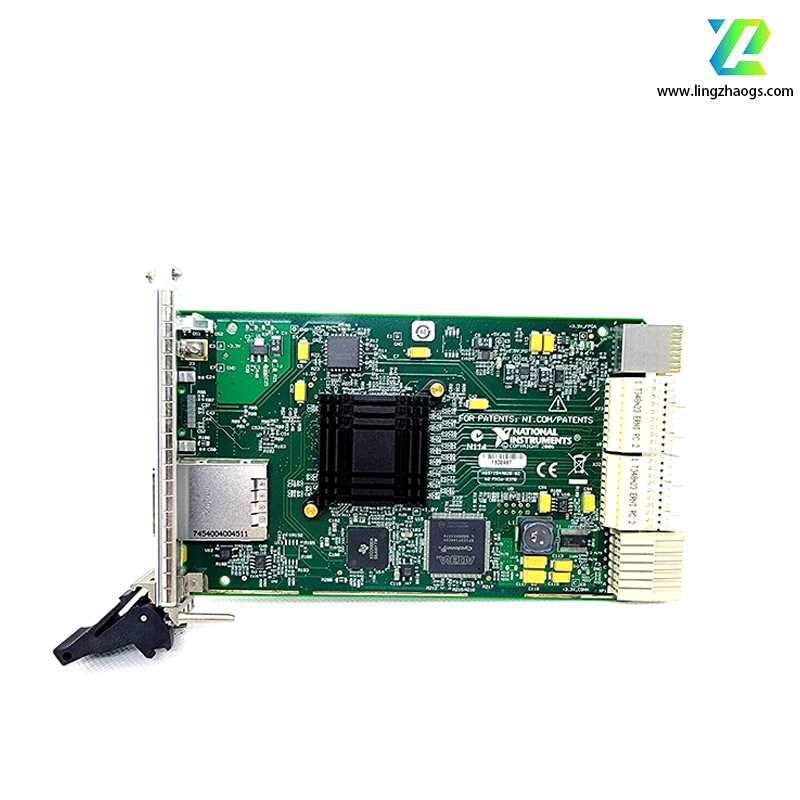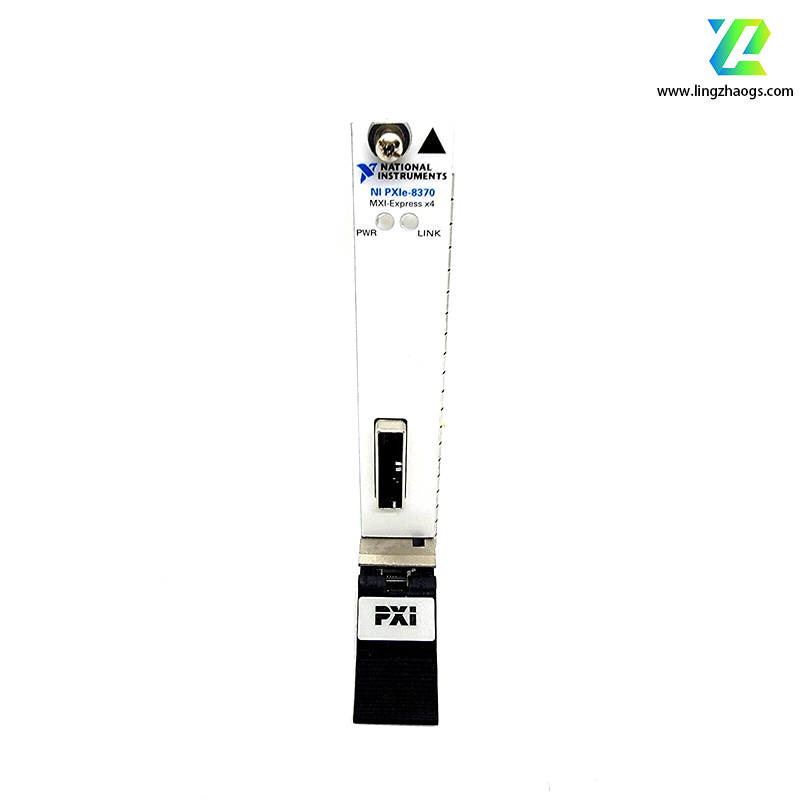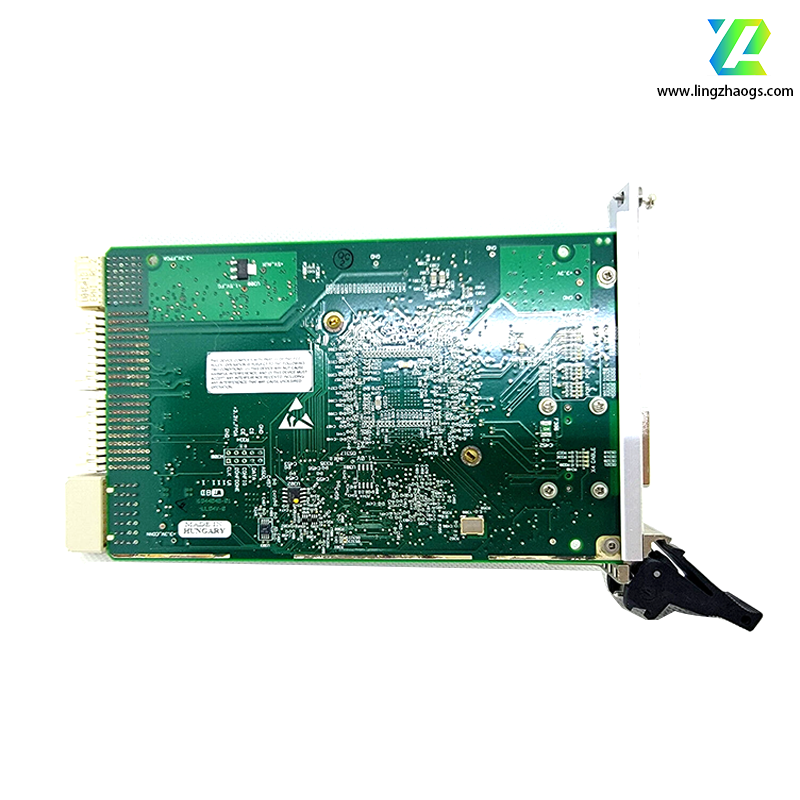The NI PXIe-8370 is a high-performance MXI-Express x4 multisystem expansion interface module designed by National Instruments (NI) for PCI Express, CompactPCI Express, and PXI Express bus systems. Its core function is to enable remote control of PXI and CompactPCI systems, facilitating high-speed data transmission and flexible system expansion in large-scale test and measurement scenarios such as aerospace, automotive electronics, and industrial automation.
- Brand: National Instruments (NI)
- Model: PXIe-8370
- Product Series: MXI-Express (Multisystem eXtension Interface Express)
- Product Type: MXI-Express x4 Expansion Interface Module (for remote control and data transmission of PXI/CompactPCI Express systems)
- Form Factor: 3U single-slot module; Dimensions: 10.0 × 16.0 cm (3.9 × 6.3 in)
- Weight: Typical 0.17 kg (0.37 lb)
- Slot Requirement: Requires 1 system slot (compatible with PXI Express or CompactPCI Express chassis)
- Life Cycle Status: Active (supported by NI with official technical assistance and maintenance services)
- Software Compatibility: Compatible with NI Measurement & Automation Explorer (MAX) for configuration; integrates with LabVIEW, LabWindows/CVI, and C/C++ development environments; transparent to device drivers (no additional software required to support PXI Express devices in connected chassis).
The module uses a fully transparent MXI-Express link, allowing a host PC to control PXI and CompactPCI systems without modifying existing device drivers. Connected PXI Express devices in the chassis are recognized as "local" to the host, eliminating the need for custom software development and ensuring seamless compatibility with legacy test workflows.
With MXI-Express x4 technology, it delivers a theoretical bidirectional bandwidth of 40 Gbps, enabling real-time transfer of large-volume test data (e.g., high-speed sensor signals, waveform data). Built-in error detection and retransmission mechanisms ensure zero data loss, critical for precision-dependent applications like aerospace component testing.
It adheres to industry standards for PXI Express and CompactPCI Express, supporting interoperability with a wide range of NI and third-party PXI/CompactPCI Express modules (e.g., data acquisition cards, signal generators, and digitizers). This flexibility makes it ideal for upgrading or expanding existing test systems.
- Temperature Tolerance: Operates reliably in 0°C to 55°C (32°F to 131°F) environments, meeting MIL-PRF-28800F Class 3 low-temperature limits and Class 2 high-temperature limits (tested per IEC-60068-2-1 and IEC-60068-2-2).
- Environmental Resilience: Withstands 10% to 90% non-condensing relative humidity (tested per IEC-60068-2-56) and supports operation at altitudes up to 2000 m (800 mbar) at 25°C.
- Operating Temperature: 0°C to 55°C (32°F to 131°F)
- Storage Temperature: -40°C to 71°C (-4°F to 160°F) (meets MIL-PRF-28800F Class 3 limits, tested per IEC-60068-2-1 and IEC-60068-2-2)
- Relative Humidity: 10% to 90% (non-condensing, tested per IEC-60068-2-56)
- Altitude: Maximum 2000 m (800 mbar) at 25°C
- Aerospace & Defense Testing: Enables remote control of PXI-based data acquisition systems in harsh environments (e.g., wind tunnel tests, engine performance monitoring), keeping host PCs in safe, controlled spaces.
- Automotive Electronics ATE: Expands test systems to support multi-channel ECU (Electronic Control Unit) testing, with high-speed data transmission for real-time analysis of sensor and actuator signals.
- Industrial Automation: Connects distributed PXI/CompactPCI Express systems for unified monitoring and control of manufacturing processes (e.g., semiconductor equipment, power grid testing).
- Laboratory R&D: Facilitates flexible integration of PXI modules (e.g., signal analyzers, arbitrary waveform generators) into a single controlled system, simplifying complex experiment setups.





